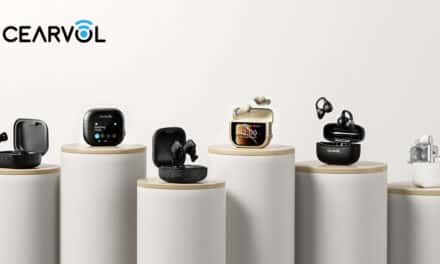The Over the Counter [OTC] Hearing Aid Act of 2017 (S 670) is expected to be passed today by the Senate Health, Education, Labor & Pensions (HELP) Committee as part of the larger Medical Device User Fee Amendments (MDUFA) package which pertains to how medical device companies will pay fees to the US Food and Drug Administration (FDA) when registering their devices with the Agency.
Introduced in March by Senators Elizabeth Warren (D-Mass) and Chuck Grassley (R-Iowa), OTC Hearing Aid Act is bipartisan legislation designed to make hearing aids for those with mild-to-moderate hearing loss available over the counter. A companion bill (HR 1652) led by Representatives Joe Kennedy III (D-Mass) and Marsha Blackburn (R-Tenn) has also been introduced in the House. The bill largely mirrors legislation (S9) introduced by Senators Warren and Grassley in late 2016, and would require the FDA to propose a rule that would establish an OTC hearing aid category for adults with “perceived” mild-to-moderate hearing loss within 3 years of passage of the legislation, and finalize a rule within 180 days after the close of the comment period.
The proposed legislation would also require the FDA to write regulations ensuring that this new category of OTC hearing aids meets standards for safety, consumer labeling, and manufacturing protections, providing consumers the safe option of an FDA-regulated device at lower cost. The Act would also supersede other state laws restricting OTC device distribution, and provide for a study of the devices relative to consumer satisfaction after 3 years.
One of the most controversial aspects of the bill has been the language pertaining to OTC devices being used for “mild-to-moderate” hearing losses—or conceivably a hearing loss up to 70 dB, which many believe would not avail itself to a “do-it-yourself” healthcare approach. The American Speech Language Hearing Association (ASHA), Hearing Industries Association (HIA), and other organizations have maintained that self-directed treatment and OTC hearing aids should be recommended only for people with mild hearing loss, for whom the risks of failed intervention are outweighed by the potential benefits.
“Hearing loss is a medical issue that requires patient care and service from a hearing professional to ensure the best outcomes,” noted HIA Chairman Brandon Sawalich of Starkey Hearing Technologies. “HIA and the other hearing health organizations that have expressed concern about the OTC hearing aid bill will continue to work with members of Congress to ensure that patient safety is the top priority.”
Although the bill is expected to pass through the committee today, it’s still possible the bill could encounter resistance and/or be modified to restrict the devices from covering more severe ranges of hearing loss.






My instinct as a licensed hearing aid provider was to be adamantly against the Over-The-Counter trend in hearing aid sales when I first heard of it in the early 2000’s. After all, history was on my side: the mail-order, one-size-fits-all analog hearing aids of the past didn’t work and I felt sure OTC sales was another fade that would pass, my livelihood as a licensed hearing aid provider was at stake.
Then I discovered two new-to-me technical marvels that changed my mind; the ReSound Air and the Internet.
And let’s be clear; OTC sales mean online sales.
In 2003, the small company I worked for then decided to embrace online hearing aid sales instead of fighting them. It worked, but there was a problem. A growing one that didn’t come from customer dissatisfaction, just the opposite. Customers loved buying hearing aids online at a great price, and our return rate for online sales equaled that of our in store sales. However, when traditional brick and mortar hearing aid providers realized how our sales were generated they complained to the manufactures claiming they were concerned for the customer’s wellbeing if sales didn’t take place face-to-face.
Acceptance of new business practices takes time; fourteen years between when we sold the first hearing aids online and Congress passing the OTC Hearing Aid Sale bill in August 2017. A long journey, and one that resulted in an improved lifestyle for thousands of hearing impaired people who, if not for inexpensive online hearing aids, would not have been able to address their hearing problem.
As a retired hearing aid provider with severe hearing loss I’m grateful for easy access to hearing aid information and being able to make purchasing decisions in the comfort and convince of home. My last three pairs of hearing aids were purchased online, and I couldn’t be happier with the online buying process and the money I saved using it.
The OTC bill’s passage will help hearing impaired people of all walks of life, no matter where they live, access a wider choice of hearing aids and prices than ever before.
Your comments are honest, candid and on-target. Obviously, the best step would be for someone to find a basic way to reverse progressive hearing loss, but in the meantime, this is a step in the right direction. The entire subject and area of hearing aids and other assistive devices could undergo a revolution similar to that experienced in telecommunications. As a physician with disabling hearing loss, I applaud the deregulation of this segment of the electronics industry.
Audiologists are against this bill because as a group they are concerned about the welfare of the patient. This is a disaster in the making. Self prescribing hearing loss solutions are very dangerous. The person could have something as simple as ear wax or as complicated as an acoustic neuroma. How will the device protect the person from further damaging their hearing from over amplifying sounds they may hear normally? This is another example of why government needs to stay out of healthcare and let the professionals do their job!
My view is that dispensers and audiologists who are fighting the OTC bill are just scared that they will lose money. Most senior citizens simply cannot afford the hearing aids that unethical hearing specialists try to push as “the only option”. People with limited budgets get a great deal of help from basic hearing aids bought from places like MD Hearing Aid, Advanced Affordable Hearing, and Audicus, and the rewards far outweigh the risks.
The greed is transparent when seeing how hearing professional’s interest in profit far outweighs their desire to help people hear. Antoinette Tiberi is a bc-his like every other hearing specialist (who are the only ones with negative comments in all of the threads about the OTC Bill)who is probably worried that she won’t make as much money if otc hearing aids are made available, and it’s harmfully disingenuous to act like her post wasn’t an attempt at a “money grab”. Basic hearing aids have been proven to work almost as well or just as well in recent double blind studies that hearing professionals conveniently ignore.
People could have serious eye problems but we don’t stop them from getting reading glasses. Does the hippocratic oath even apply to audiologists? They sure don’t seem to care about harming the general public because they are commenting like crazy in all the forums to try to stop people from being able to afford hearing aids.
SMH.
It is clear that you are not interested in the long term health care of any hearing impaired person, you just care about price. Shame on you, you and your elik will do more damage to the hearing impaired population than any Audioligist or Hearing Instrument Dispenser could ever to to a patient
Addition to previous post. I don’t know a single hearing aid fitting professional in the field that is making it big. Conversely, I don’t know a single person in insurance that is hurting for money. How about instead of pushing this bill through, perhaps insurance companies could actually pay out a little to all of those that bend over backwards to pay in to it.
I agree. In my experience, patients are more surprised that insurance does not cover hearing aids than they are about the cost of hearing aids. In other words, patients realize that our services have value. This bill is an attempt to strategically deflect the core issue of providing professional hearing care to those who need it and instead trying to relabel the core issue as the cost of hearing health care is too high. The public can be easily deceived and insurance companies and legislatures realize this. The public needs to know that insurance companies have very powerful donation and lobbying ability. I don’t know a single hearing professional in the field that is making it big. Unfortunately hearing health care is expensive like any other form of health care. What IS different is that most insurance does not cover hearing aids. If less money goes into hearing health care, then this will lead to few hearing professionals. Few hearing professionals equals less access to hearing care for those who really need it, especially in rural areas. This bill would appease big insurance and superficially satisfy the public that generally does not understand the training and tools involved to fit hearing aids while the much smaller number of hearing professionals (with a much smaller voice) will get completely run over.
This bill is an obvious money grab by big companies. Self prescribing hearing loss is very dangerous you may have an acoustic neuroma, impacted wax, ear infection etc that needs medical attention but you won’t know because you picked something of the shelf. Also hearing aid sound needs to be customized and the number of people who will be discouraged from semi g help after there experience with these products will be enormous which also has long term effects such as demensia, depression etc.